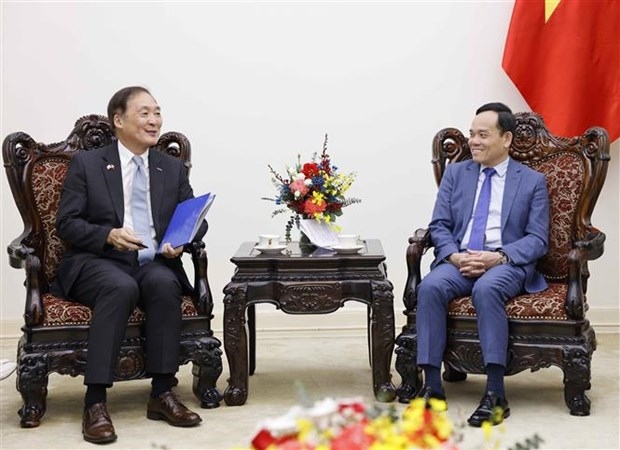RoK to increase ODA for Vietnam to over US$52 million
VOV.VN - President of the Korea International Cooperation Agency (KOICA) Chang Won-sam has told Deputy Prime Minister Tran Luu Quang that official development assistance (ODA) from the Republic of Korea (RoK) for Vietnam will increase to more than US$52 million, nearly doubling the figure of 2023.

At a reception for the Korean guest in Hanoi on March 19, the Deputy PM noted his appreciation for the RoK’s ODA for Vietnam, saying that it has contributed to Vietnam’s socio-economic development. He said he hoped that the RoK will become Vietnam's largest ODA provider in the time to come.
He highlight development cooperation as a focus of the comprehensive strategic partnership between Vietnam and the RoK. By the end of 2023, the Korean Government's non-refundable aid through KOICA to Vietnam had reached roughly US$600 million.
Quang suggested KOICA in general and the KOICA President personally continue their support, thus contributing to the development of the ties between the two countries as well ass between Vietnam and KOICA.
The Deputy PM wished that the RoK will continue to increase the scale of non-refundable aid to Vietnam, especially in innovation, digital transformation, and high-tech development.
He also proposed KOICA consider urging the Korean Government to have official commitment to a rural power supply project in Vietnam’s northern province of Dien Bien.
In response, KOICA President Chang Won-sam said that his current visit to Vietnam is to assess the implementation of KOICA's projects in Vietnam and discuss cooperation orientations to concretise ODA commitment for the 2024-2027 period by Korean President Yoon Suk-yeol during his visit to Vietnam last June.
The Korean government and KOICA place great importance on relations with Vietnam, he added.
Established in 1991, KOICA is in charge of non-refundable aid projects of the Korean Government, with the increasing capital scale. In recent times, KOICA's ODA projects in Vietnam have concentrated on public administration, health care, and education.
Both sides are considering the expansion to such new areas as climate change adaptation and digital transformation.

